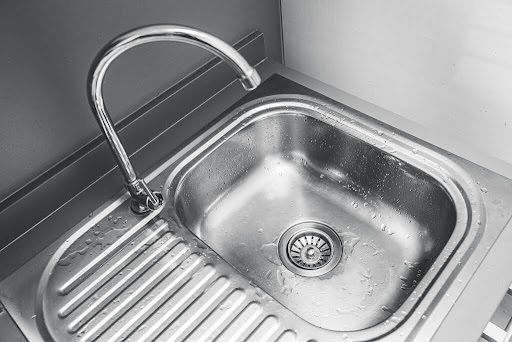Upgrade your kitchen with our High-Quality Stainless Steel Sinks 🚰 Durable, Elegant & Easy for an efficient cooking space 🏡✨
A durable, elegant sink is essential for any kitchen. It not only enhances the aesthetic appeal but also withstands daily wear and tear. Additionally, an easy-to-clean surface simplifies maintenance, making it a practical choice for busy households striving for both beauty and functionality. Click the link for more information: https://www.fujioh.com/sg/products/sinks/
The Appeal of Stainless Steel Sinks
Stainless steel is a durable alloy primarily composed of iron, carbon, and a minimum of 10.5% chromium. This composition enhances corrosion resistance, making stainless steel ideal for various applications in cookware, construction, and medical instruments due to its strength and low maintenance requirements.
Stainless steel is highly sought after for kitchen sinks due to its durability, resistance to corrosion and staining, easy maintenance, and sleek appearance. Its non-porous surface inhibits bacterial growth while offering a contemporary aesthetic that complements various kitchen designs seamlessly.
Stainless steel sinks significantly elevate kitchen aesthetics with their sleek, modern appearance. Their reflective surface adds brightness and depth, while durability ensures long-lasting beauty. Available in various styles and finishes, these sinks seamlessly blend functionality with design, making them an ideal choice for contemporary kitchens.
The durability of High-Quality Stainless Steel Sinks
The durability of stainless steel sinks is remarkable, making them a popular choice for kitchens. Their resistance to rust, stains, and corrosion contributes to their longevity. Additionally, the material’s ability to withstand heat and impact further ensures it remains functional over time.
Stainless steel exhibits impressive resistance to chipping, cracking, and staining due to its alloy composition and non-porous surface. This durability makes it an ideal choice for various applications, ensuring longevity and maintaining aesthetic appeal by resisting damage from physical impacts and environmental factors.
Stainless steel exhibits significant resistance to heat damage due to its alloy composition, which includes chromium. This element forms a protective oxide layer that withstands high temperatures and prevents oxidation. Additionally, it maintains structural integrity, making stainless steel ideal for various high-temperature applications.
Elegance of High-Quality Stainless Steel Sinks
Stainless steel sinks possess enduring charm and unmatched versatility, making them a staple in modern kitchens. Their sleek appearance complements various designs, while durability ensures long-lasting function. Easy to clean and resistant to stains, these sinks seamlessly blend practicality with aesthetic appeal for any space.
Stainless steel sinks significantly enhance a kitchen’s visual appeal, offering a sleek and modern aesthetic. Their reflective surface brightens the space, while their clean lines complement various design styles. This functionality combined with elegance makes them an essential element in contemporary kitchen designs.
Stainless steel sink models are designed to complement various kitchen aesthetics, offering versatile styles that seamlessly blend with modern, traditional, or farmhouse decor. Their sleek finishes and customizable sizes ensure they enhance functionality while elevating the overall visual appeal of any kitchen space.
Easy-to-Clean Nature of High-Quality Stainless Steel Sinks
Stainless steel sinks are easy to clean due to their smooth, non-porous surfaces that resist stains and grime. Their durability allows for safe scrubbing without damage, while resistance to rust and corrosion ensures long-lasting cleanliness. A simple wipe with mild detergent suffices for upkeep.
To maintain and clean a stainless steel sink, regularly wipe it with warm soapy water, then rinse thoroughly. For tougher stains or water spots, use baking soda or vinegar. Avoid abrasive scrubbers to prevent scratches; instead, opt for soft cloths or sponges.
Stainless steel sinks offer significant hygienic advantages due to their non-porous surface, which resists bacteria growth and is easy to clean. They withstand harsh cleaning agents, ensuring effective sanitation while preventing the accumulation of germs. Their durability makes them a reliable choice for health-conscious households.
How to Choose the Best High-Quality Stainless Steel Sink for Your Kitchen
When purchasing a stainless steel sink, consider factors such as gauge thickness for durability, the finish quality to resist scratches and stains, size compatibility with your cabinetry, design features like deep basins or divided sections, and ease of maintenance for longevity.
Crafted from an alloy of steel mixed with chromium and nickel, these sinks are designed to resist rust, staining, and corrosion while providing a sleek and modern appearance that complements a variety of kitchen styles. Whether it’s in bustling restaurants or cozy home kitchens, stainless steel sinks offer practical benefits such as ease of cleaning, resistance to heat damage, and excellent sanitation properties. As cooking spaces evolve into multifunctional areas for food preparation and socializing alike, the rise of stainless steel sinks highlights not only functional engineering but also elegant design considerations that cater to diverse culinary needs. This introduction explores the various features, advantages, aesthetic appeal, and maintenance best practices associated with stainless steel sinks — making them a wise choice for anyone looking to enhance their kitchen experience.
To ensure a perfect fit for your stainless steel sink, measure the existing space accurately. Consider dimensions such as depth, width, and height of cabinetry. Also, account for plumbing fixtures and ensure there’s enough clearance around for installation and access.
The Environmental Impact of Stainless Steel Sinks
Stainless steel is highly recyclable, making it an environmentally friendly material. Its properties allow for multiple recycling iterations without degrading quality. This process conserves raw materials and energy, contributing to sustainable practices within industries that rely on durable goods made from stainless steel.
Assessing the environmental impact of stainless steel involves analyzing its life cycle, from raw material extraction to manufacturing processes and end-of-life disposal. It is essential to evaluate resource consumption, energy use, emissions produced, and recycling potential to minimize ecological effects effectively.
FAQs
What are the disadvantages of stainless steel sinks?
Stainless steel sinks have disadvantages, including susceptibility to scratches and dents from heavy cookware. They can also show water spots and fingerprints easily, requiring frequent cleaning. Furthermore, lower-quality stainless steel may not be as durable or resistant to corrosion over time.
Is stainless steel best for sinks?
Stainless steel is often considered the ideal material for sinks due to its durability, resistance to corrosion, and ease of maintenance. Its sleek appearance complements various kitchen styles, while it withstands high temperatures and impacts, making it a practical choice for everyday use.
What is the best gauge for stainless steel sinks?
The ideal gauge for stainless steel sinks typically ranges between 16 and 18. A lower gauge number indicates a thicker material, which generally offers better durability and resistance to dents. Choosing the right gauge ensures longevity, aesthetics, and overall functionality in kitchen or bathroom applications.
Do all stainless steel sinks scratch easily?
Stainless steel sinks can develop scratches over time, particularly when exposed to heavy use or abrasive cleaning tools. However, they are generally more resistant to scratches than other materials. Proper care and using gentler cleaning methods can help maintain their appearance longer.










